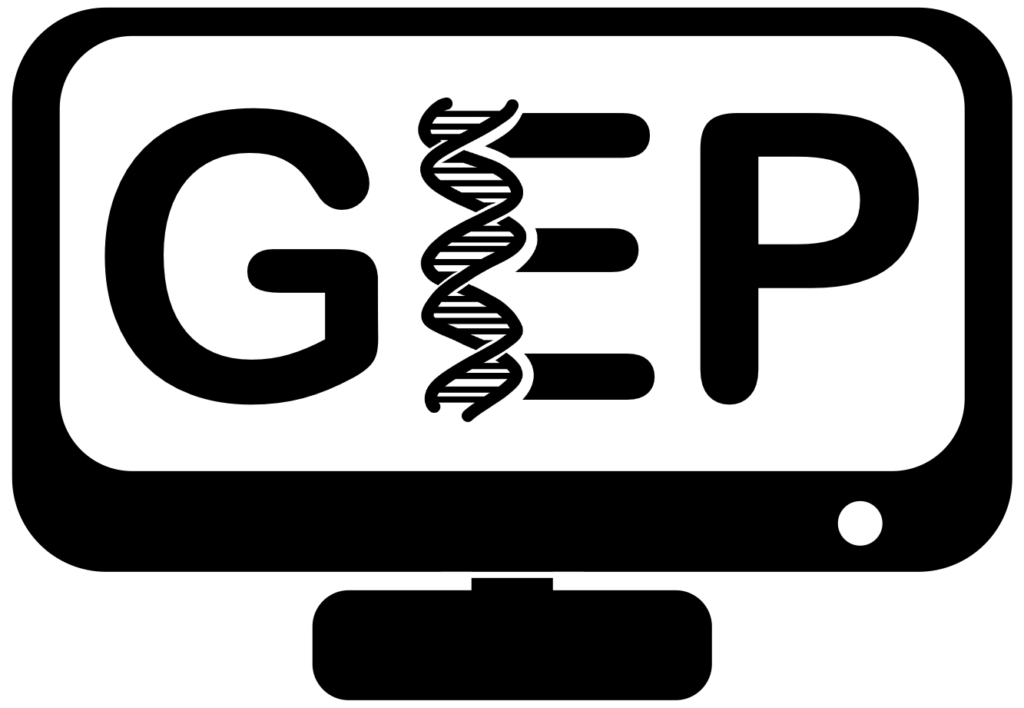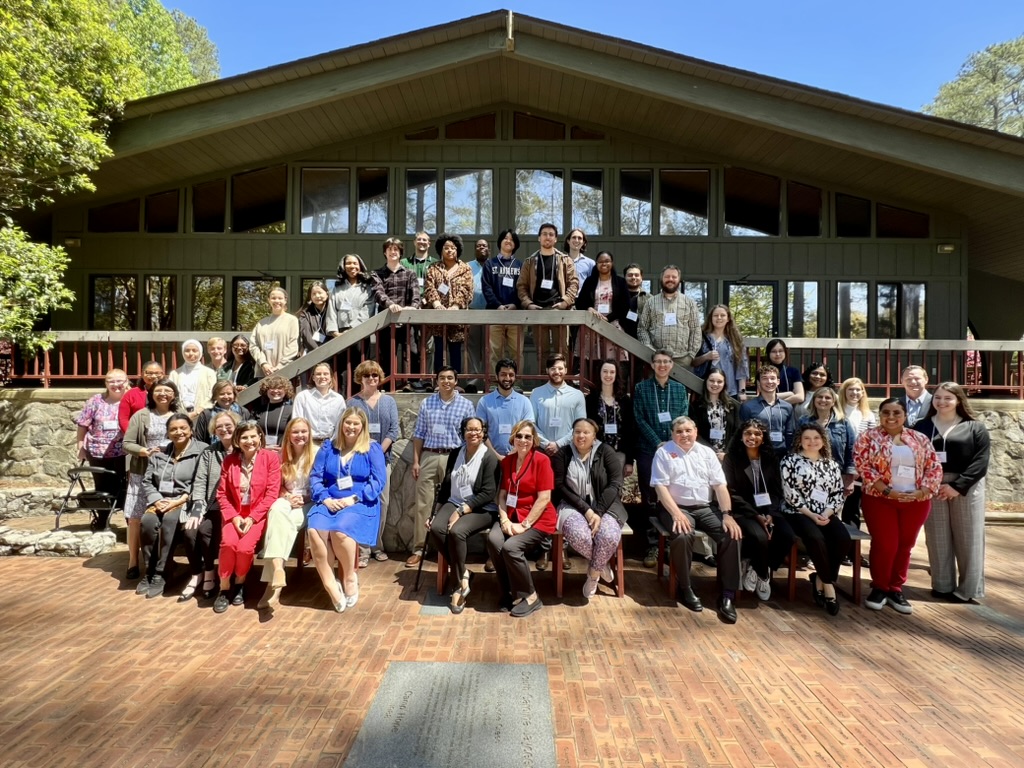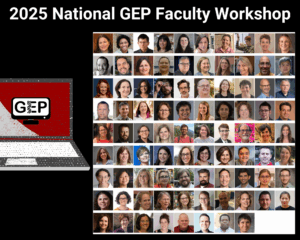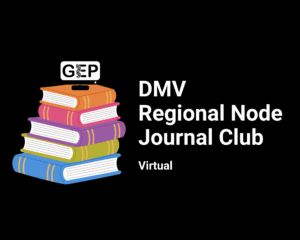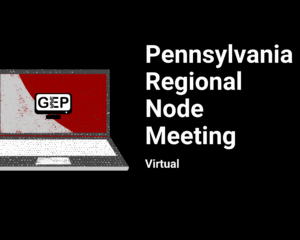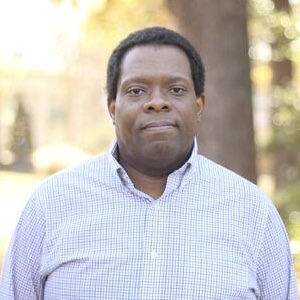“Everything about the event was amazing.” This was how students from Agnes Scott College (Dr. Srebrenka Robic, GEP faculty) summarized their experience of the event. Srebrenka said that all of their comments were very positive. All reflected on how welcoming the symposium space felt and how easy it was to talk to and network with others.
The Carolinas Regional Node Meeting held a student-centered symposium on April 13, 2024 at the Clemson University Outdoor Lab. The venue offered a conference space (Kresge Hall) and lodging in cabins in a scenic wooded area. Those who had a long drive came on Friday, April 12, shared a great time together at Smokin’ Pig in Pendleton for dinner and stayed at the cabins. The event was attended by 70 people, 39 of which were undergraduate students (32 from GEP, 7 from Clemson), 11 were graduate students (6 from GEP, 5 from Clemson), 11 were current GEP faculty, and 9 people participating as panelists or keynote speakers.
Keynote Speaker
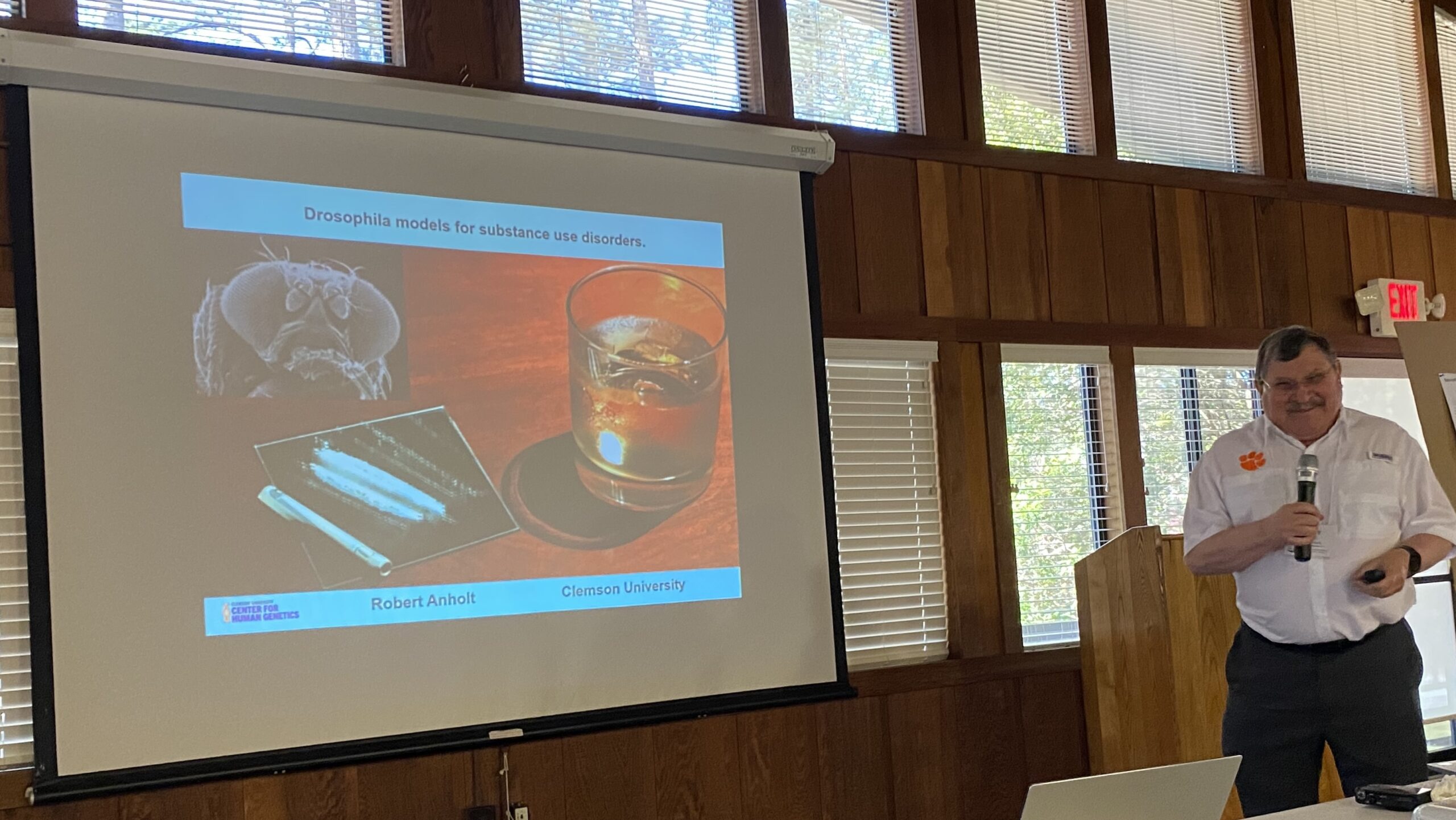 Dr. Robert R.H. Anholt, the Provost’s Distinguished Professor of Genetics and Biochemistry in the Clemson University Center for Human Genetics, was our keynote speaker. Dr. Anholt’s research focuses on dissecting the genetic architecture of behavior in Drosophila melanogaster, and developing Drosophila as a genetic model for identifying ensembles of genes that predispose humans to phenotypes including substance use disorders and rare genetic diseases. He gave an extremely interesting and engaging talk titled “Drosophila models for substance use disorders”. He presented and discussed results from genome-wide association analyses that have identified single nucleotide polymorphisms (SNPs) associated with variation in cocaine preference, as well as results from a gene expression analysis of Drosophila lines reared on ethanol-supplemented medium.
Dr. Robert R.H. Anholt, the Provost’s Distinguished Professor of Genetics and Biochemistry in the Clemson University Center for Human Genetics, was our keynote speaker. Dr. Anholt’s research focuses on dissecting the genetic architecture of behavior in Drosophila melanogaster, and developing Drosophila as a genetic model for identifying ensembles of genes that predispose humans to phenotypes including substance use disorders and rare genetic diseases. He gave an extremely interesting and engaging talk titled “Drosophila models for substance use disorders”. He presented and discussed results from genome-wide association analyses that have identified single nucleotide polymorphisms (SNPs) associated with variation in cocaine preference, as well as results from a gene expression analysis of Drosophila lines reared on ethanol-supplemented medium.
Panels

Our first panel was moderated by Dr. Trudy Mackay, Professor of Genetics and Biochemistry, Director of the Clemson University Center for Human Genetics, and Self Family Endowed Chair of Human Genetics. Dr. Mackay and Dr. Anholt have a long, productive history of synergistic collaborations and together they lead the Mackay-Anholt Lab. The panel focused on Careers in Genomics and the three panelists represented a breadth of occupations and career stages in the field. Dr. David Clayton is a Professor and Chair of the Department of Genetics and Biochemistry at Clemson University; Dr. Heather Flanagan-Steet is the Director of Functional Studies at the Greenwood Genetic Center’s JC Self Research Institute of Human Genetics; Dr. Aaron Masino is an Associate Professor in the School of Computing at Clemson University and holds the Clemson University Center for Human Genetics Dr. Gary Spitzer Endowed Distinguished Professorship in Genomics.
The panelists shared their career trajectories, offered advice, and answered many students’ questions that ranged from the practical (e.g., do’s and don’ts of approaching potential graduate advisors) to the conceptual (e.g., how does one know if this is right for them?). Students learned a great deal about the multiple options available to them in the field of genomics, from academia to industry, from genetics to computing and bioinformatics, and more.
The second panel was moderated by Dr. Barbara (Barb) Campbell, who is the Dean’s Distinguished Professor and graduate program coordinator in the Department of Biological Sciences at Clemson University. This panel offered the perspective of recent or current graduate students in the field. It was composed of Jeffrey “Spencer” Hartfield, a doctoral student in Genetics in the Department of Genetics and Biochemistry and Clemson University Center for Human Genetics; Dr. Mark Loftus, a Postdoctoral Fellow in the same department; and Dr. Rebecca MacPherson, a variant analyst in the Molecular Diagnostics Laboratory at Greenwood Genetic Center. Panelists were candid and honest in sharing their personal and professional stories, lending an intimate atmosphere to the event. Spencer gave an emotional account of his journey and the power of meeting people who believe in you and offer you unique opportunities. Rebecca shared her personal approach to work-life balance and Mark shared his enthusiasm for research and the realities of looking for a “real” job.
Both panels were extremely well-received by students, some of which even stayed to talk with panelists after the panel sessions were over.
Student Presentations
The student presentations, however, were the highlight of the event. There were twelve posters and two oral presentations, one of which was a remarkably fascinating story by a group of students from Mercer University. The poster session was lively, interactive, and motivating.
We heard so much positive feedback, both from presenters and those who did not present. For example, Indi Bose’s students from Western Carolina University—having seen others and how comfortable they felt at the venue—wished they would have presented. One of Scott Tanner’s students at the University of South Carolina Upstate, who had only recently agreed to do GEP work with Scott for the summer, came to the meeting knowing relatively little. She came away with so much knowledge and was so appreciative of everyone’s patience with her. She was complimentary of all the students she spoke to, mentioning how they were able to break everything down and provide clear explanations. Srebrenka Robic’s students appreciated the chance to present and get helpful feedback. They loved the career panel and shared some insights from it with the rest of the class. Before the event, John Stanga’s students from Mercer University were worried, but once they bonded with their peers from other institutions, they became comfortable and felt like they belonged. After the event, John asked all the poster presenters the same question: what did you learn about yourself or about research by doing this? He heard many great answers: positive career decisions, the ability to overcome frustration and confusion, greater appreciation for what genetics is and why we should care about it, and feelings of belonging despite a disability, among others.
The very last event of the day was a short but interesting tour of the Genomics and Bioinformatics Facility at Clemson University, which was attended by about half of the attendees even though we were late on the schedule, and many had a long drive home.
The location of the symposium, in the western part of South Carolina, provided the added benefit of allowing us to invite colleagues from the Atlanta area in the Southeast Regional Node. This made for a dynamic, vibrant GEP community gathering.
Many thanks are in order. The first and biggest to our own Sally Elgin, without whose help the event would not have been possible. Trudy and Robert, as Sally refers to them, are her friends and colleagues and she reached out to them early, in July 2023. It turns out that they are very efficient and quickly organized a meeting with Sally, Marisol, Dr. David Clayton, and Associate Dean, Dr. Calvin Williams, to see if there would be any interest or capacity for this type of event at Clemson. Sally prepared some slides to introduce the GEP to our Clemson partners and Marisol explained the idea for the event—provide GEP students with the opportunity to visit a cutting-edge research center, meet with professionals, listen to research talks, hear about careers in genomics, and have student presentations. The meeting went well, Drs. Clayton and Williams were on board, and they even saw opportunities for their own students and faculty to participate. Many months and meetings later this came to fruition. Our most heartfelt thanks, Sally. And thanks to the Clemson University Department of Genetics and Biochemistry and Human Genetics Center faculty and students, in particular to Robert and Trudy. Robert was extraordinarily efficient and helpful along the way. In no-time he had booked the location and paid the deposit, putting us in touch with the Outdoor Lab coordinator. He also suggested the names for panelists and sent emails to the faculty at Clemson so they could recruit students for the event. Also, thanks go to Rooksana “Rooksie” Noorai, Assistant Director of Bioinformatics at Clemson University Genomics and Bioinformatics Facility, who stayed late on a Saturday to give us a tour of the facility.
Thanks, of course, to the members of the Carolinas Node for your efforts in the planning and execution, and especially to Node co-leaders, Marisol Santisteban (UNC Pembroke) and Michele Eller (Southern Wesleyan University). Michele happened to be local and was able to iron out so many kinks and took care of so much stuff in person. Michele is the epitome of efficiency and organization. Thanks also to Indi Bose (Western Carolina University), Jeff French (North Greenville University), Maria Pereira (UNC Pembroke), Scott Tanner (University of South Carolina Upstate), and Vida Mingo (Columbia College) for coming and helping on the ground. And to those who could not make it but still sent their students, like Nicole Velmeshev and Cathy Silver Key (NC Central University) and Christine Richardson (University of North Carolina at Charlotte). And thanks to our Georgian colleagues, Srebrenka Robic (Agnes Scott College), John Stanga (Mercer University), and Pushpa Yadav (Middle Georgia State University) who answered our call and came and brought many student presenters. All those students were amazing helpers putting up and breaking down poster boards and easels in record time.
Our final thanks are to the Regional Node leaders, Mel and Jenny, for their unwavering support and the GEP staff, Sarah and Katie, for taking care of what seemed like thousands of tasks. Katie was recruited to help on the administrative side when Sarah was on maternity leave. Katie also created our beautiful program, provided helpful advice on planning, and joined us in person at the event!
The ability to have the event at an R1 Institution that has a center for Human Genetics and Genomics facilities was a unique treat. Maybe this model of holding Node events at R1 Institutions could be a modality for some Node events that would be cost effective. It is our hope that the symposium was also good for Clemson, in making the school more visible to prospective graduate students. If our Clemson partners were equally happy with the event, it could be a good prototype for encouraging more R1 Universities to host GEP Node events. Additionally, Dr. Clayton expressed interest in learning about the GEP materials and how they might use them in their foundational courses, to set the stage for the students to dive into the deep end of technologies and genetic data analysis. We will be scheduling a meeting soon.
In closing we must quote Srebrenka Robic again, who—with a wide smile across her face—said before leaving: “When are we having the next one?”
What worked well for your event that might help others plan similar events?
This was a fairly large event with about 70 attendees, securing the appropriate venue was key to success. The conference center was the “right size” for our event, it did not feel crowded but was not ridiculously “empty”. Everything took place in the room, so there was no time “wasted” in changing locations: poster and oral presentations, keynote speaker, and panels. Even food was also served in the same room on a long table, buffet style, which promoted more communication. Posters were arranged around the room facing the center, except for the front, where the podium, projection, and table for panels were set up, and one side where the food was served.
The conference center was part of the compound known as the Outdoor Lab and extremely affordable lodging facilities were in place.
Because the event was meant to be a student centered mini-symposium, we wanted to have panels of experts in the field of Genetics/Genomics and a keynote speaker that would suit the most important members of our audience: the undergraduate students. We were fortunate to have the contributions of many professors and affiliates of the Clemson University’s Department of Genetics and Biochemistry and Clemson University Center for Human Genetics, including two persons that currently work at a nonprofit institute for medical genetics, the Greenwood Genetic Center, as well as a graduate student and postdoc who brought a student perspective to the field. This was made possible through a personal and professional connection of our own Sally Elgin to Trudy F. C. Mackay, PhD, FRS, Self Family Endowed Chair and director of the Clemson University Center for Human Genetics and Robert R. H. Anholt, PHD, Provost’s Distinguished Professor of Genetics and Biochemistry, Clemson University Center for Human Genetics.
The ability to have the event at an R1 Institution that has a center for Human Genetics and Genomics facilities was a unique treat. Maybe this model of holding Node events at R1 Institutions could be a modality for some Node events that would be cost effective.
Finally, having to plan for this event gave cohesiveness to the Node (at least a fraction of the constituents) and a core group of people came together for several planning meetings.
What would your Node do differently based on your experiences?
We would have liked to work harder on inviting faculty from neighboring community colleges, or even high schools. That was within our plans, but we got consumed with the logistics and this went to the back burner and out the window. One member of the Node could just work on this effort.
We did not have much attrition but there was some. This was from undergraduate students, some presenting, some not. If we had to do this again, maybe we should include something in the registration that gives some sense of the commitment and the seriousness of registering to make sure that students know that last minute cancellations or no shows are really looked down upon and create much disturbance.
